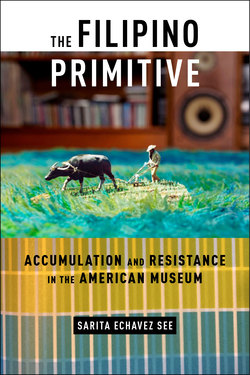The Filipino Primitive

Реклама. ООО «ЛитРес», ИНН: 7719571260.
Оглавление
Sarita Echavez See. The Filipino Primitive
Отрывок из книги
THE FILIPINO PRIMITIVE
Accumulation and Resistance in the American Museum
.....
If Austen’s novels in the era of waning landed property perform the subjectivity of possession, Trollope’s novels in the era of finance capital and high imperialism perform the subjectivity of debt, and the double meaning of forgiveness drives several of his plots. We read to find out whether a character’s moral transgression or violation of codes of respectable behavior will be forgiven. We read to find out whether and how a character will pay off a monetary debt. Fiction can work powerfully to reveal the fictitiousness of capital, and none so rivetingly as Trollope’s world of debt, gambling, primogeniture, social ambition, and usury as his characters traverse the politics of the living room, the church, and Parliament. At his best, Trollope manages to make fascinating the most boring people and phenomena. The Last Chronicle of Barset is about a twenty-pound check. The Eustace Diamonds is about a necklace. Framley Parsonage is about an IOU. The eight-hundred-page novel Can Your Forgive Her? turns on Alice Vavasor’s inaction, her refusal until the inevitable end to marry and cede control over her income to her husband. Gambling and speculation emerge as a thematic across much of Trollope’s oeuvre. In novels like Can You Forgive Her? and The Way We Live Now there are scenes involving card or dice play in gentlemen’s clubs or in notorious resort and casino towns like Baden and Lucerne. Morally opposed to and socially barred from the vice of gambling, upper-class women characters use gambling as a metaphor for love. In The Last Chronicle of Barset, Lily Dale says of her love for Adolphus Crosbie: “If it were simply myself, and my own future fate in life, I would trust him with it all tomorrow, without a word. I should go to him as a gambler goes to the gambling-table, knowing that if I lost everything I could hardly be poorer than I was before.”46
Most infamously, in The Way We Live Now the enigmatic financier Augustus Melmotte takes gambling to its highest form of fiscal speculation: gambling with nothing, that is, empty assets. Trollope’s portrait of Gentile gambling tends to be gentlemanly. Near-penniless aristocrats gather at the card table in their exclusive London clubs and gamble with IOUs. But when it comes to Melmotte, who is rumored to be a Jew, the practice of gambling with debt occurs on a monumental scale. Melmotte takes London by storm with outrageously lavish parties, a demure and marriageable daughter, and a dazzling shareholding scheme that would fund the building of a railway from Utah to Mexico. Along the way, we learn about all the practices of swindling, cheating, and forgery that were endemic to the era but conveniently condensed in the racialized figure of the Jew. Trollope’s anti-Semitism lays the blame for fiscal fraud on the figure of the Jew. If we read Melmotte’s crimes of forgery and deception against the grain, however, we see that his falsification of signatures brilliantly reveals the scandalous fictitiousness of capital itself, a phenomenon that has manifested time and again in our own era. As David Harvey argues in his account of the dot-com bust that began in 1999, the resultant economic collapse “soon spread to reveal that much of what passed for finance capital was in fact unredeemable fictitious capital supported by scandalous accounting practices and totally empty assets.”47
.....